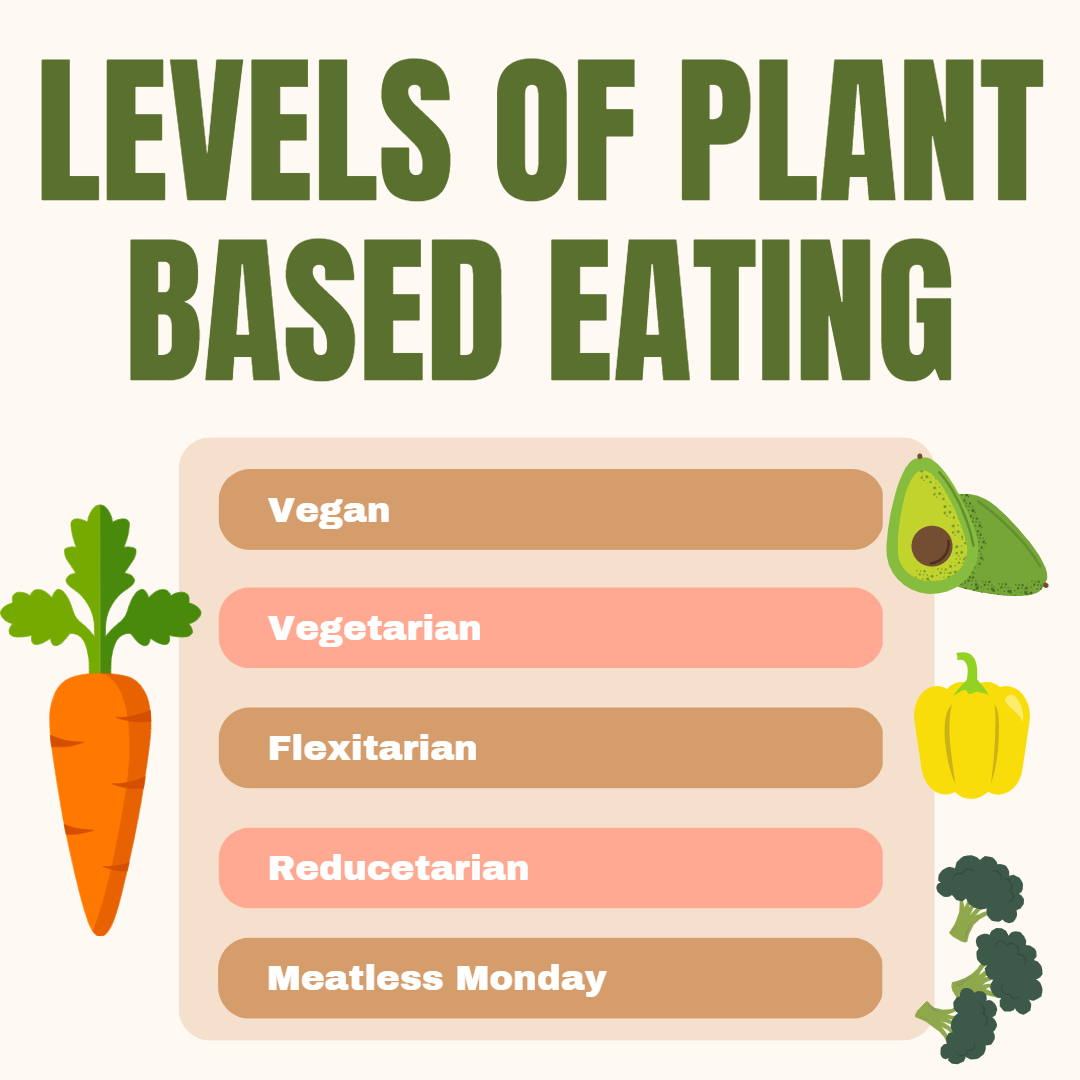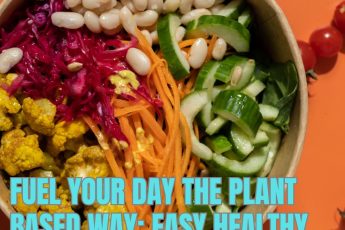There are so many options for plant based eating today because of various reasons, including health benefits, environmental sustainability, animal welfare, or personal beliefs. Plant based diets, rich in fruits, vegetables, whole grains, and legumes, have been shown to have a lower risk of chronic diseases, such as heart disease and type 2 diabetes. Additionally, reducing the consumption of animal products can have a positive impact on the environment by reducing greenhouse gas emissions and conserving resources. Some people also choose a plant based diet based on ethical or moral concerns, such as animal rights.
There are a few DIFFERENT TYPES OF EATING styles to accommodate a plant based lifestyle.
Vegan: A vegan diet is one in which no animal products are consumed. This includes meat, dairy, eggs, and any other animal-derived ingredients. Vegans also typically avoid using animal products in other areas of their lives, such as clothing and personal care products. This is typically the most restrictive diet of plant based eating but many grocers off a wide selection of typical foods in plant based forms. Check out our PLANT BASED SWAPS for some of our favorite plant based recommendations for common foods.
Vegetarian: A vegetarian diet is one in which no meat is consumed, but dairy and eggs may be included. Some vegetarians also eat fish, but this is a separate category called pescatarian.
Flexitarian: A flexitarian diet is one that is primarily plant based, but also includes occasional meat and animal products. This type of diet is also known as a “semi-vegetarian” diet, which allows for flexibility and can be a more sustainable approach for some people.
Reducetarian: A reducetarian diet is a diet that is focused on reducing the amount of meat consumed, but not necessarily eliminating it regularly or consistently. This can include eating a plant based diet most of the time but still occasionally eating meat or animal products.
Meatless Monday: Meatless Monday is a GLOBAL MOVEMENT that encourages people to go meat-free one day a week. The idea is to reduce the amount of meat consumed, and in turn, reduce the environmental impact of meat production. This can include eating a plant based diet on Mondays or simply cutting out meat for the day.
It’s worth mentioning that all these options are valid, and it’s important to find what works best for each individual. It’s important to listen to your body and consult with a healthcare professional before making any drastic changes to your diet. It’s also important to remember that everyone’s dietary needs are different, and what works for one person may not work for another. The key is to find a way of eating that is sustainable and enjoyable for you, while also providing the necessary nutrients to maintain your health and well-being.






